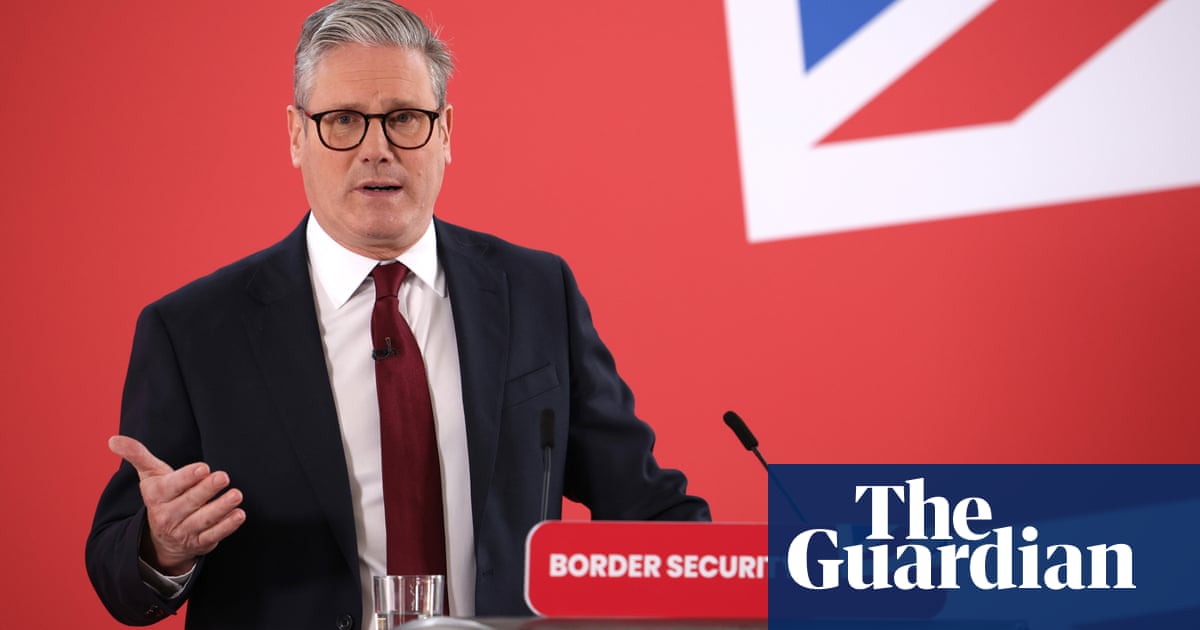
Avery good few days for the Labour party just got even better. In a normal week, the ousting of Boris Johnson and a summer succession battle between a field of underwhelming Tory leadership candidates would mean Labour’s cup was already full to overflowing. But this has been an extraordinary political week. And it proved to have one more big reveal up its sleeve. It came just before lunchtime on Friday with the news that Durham police will not be issuing fixed penalty notices to Keir Starmer or Angela Rayner.
The immediate political consequence is that it is now beyond doubt that Starmer and Rayner will lead their party into the next election. If Durham police had fined either of them, they would have had to step down. Labour would have been instantly reduced to the same sort of internal turmoil and inward-looking argument that is now gripping the Tories. Now this option is completely off the table. All the talk about Andy Burnham, Lisa Nandy, Rachel Reeves, Wes Streeting and the rest can be put back in a box, perhaps for two years, perhaps for even longer.
Starmer and Rayner have been vindicated in their confidence that no Covid lockdown rules were broken when they had a curry and a beer in Durham during the 2021 local election campaign. Quite why it took Durham police so long to reach its verdict when it had already gone through the case before and found nothing in it is mysterious. It looks a bit fishy that the announcement was made as soon as the ousting of Johnson was complete. Just as happened in London with the Downing Street party findings, the police seem keen to hold back their announcements until a time when they are at less risk of being accused of intervening in politics. This could have been sorted long ago.
The Durham decision is important in another sense. It ensures that the public’s justified opprobrium towards political rule-breaking during the pandemic remains focused where it should be focused: on Johnson and Downing Street, not on politics as a whole. If Starmer had been fined as well, the public would have been entitled to wish a plague on both their houses. Instead, the fact that he had no case to answer enabled Starmer to go to his press conference on Friday afternoon and claim that, with him, honesty and integrity matter. This will clearly be one of the major Labour dividing lines in the next election campaign. As Starmer himself said on Friday, this is “no small project”.
After this dramatic week the Labour party suddenly has the scent of power in its nostrils. The governing party is in disarray. The Tories have lost a leader who, not so long ago, was their electoral asset. There is, of course, a respectable case for asking whether Johnson’s departure (assuming it happens) removes the main reason why so many voters revolted against the Tories in the recent byelections in Wakefield and Tiverton and Honiton. But Johnson has trashed the Tory brand as well as his own over the past three years, and the leadership contest is certain to expose some deep disagreements about what the Conservative party now stands for in the post-Johnson era. It cannot be simply assumed that a new Tory leader will ease into a dominant position and become popular and trusted.
There is a marked confidence about Starmer right now, which was evident in his dismissal of any idea of a coalition with the Scottish Nationalists and his desire for a Labour majority in the face of questions over an alliance with the Liberal Democrats. Many think Labour is deceiving itself – something that has happened before under Neil Kinnock and Ed Miliband – and that the opposition ought to be out of sight in the polls after the last few months. Or it may just be that Starmer’s cautious, incremental approach to regaining power after the Johnson and Corbyn years – though exasperating for those who want him to lay out the big plans he again hinted at on Friday – is proving to be quite a canny long game.
Martin Kettle is a Guardian columnist












